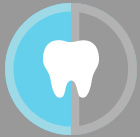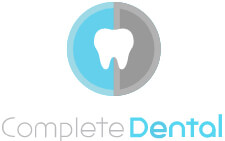If you’re wondering what to eat after wisdom teeth are removed, we guess you’re facing wisdom teeth removal. Wisdom tooth surgery can cause many patients stress. They worry the procedure may hurt and cause swelling and pain. Knowing what you can and can’t eat during your recovery and making sure you’re stocked up with all the ingredients you need may help eliminate some of the stress. But first, let’s take a quick look at why wisdom teeth often need to be removed.
Why is wisdom teeth removal necessary?
Wisdom teeth have a reputation for being problematic. This last set of molars usually starts to come through in the late teens or early twenties, and when they do start to erupt there isn’t sufficient room for them behind the second set of molars. Crowding means the wisdom tooth gets stuck or impacted in the gums, trapping food particles and bacteria, leading to pain, swelling and a condition called pericoronitis. More often than not, in these cases, the only treatment is wisdom teeth removal.
Dentists prefer to carry out wisdom tooth extractions earlier in life since younger people heal faster and generally experience fewer complications than older people who have had teeth removed.
Caring correctly for the extraction sites in the first few days following surgery is vital in promoting a speedy and comfortable recovery. Ensuring you have plenty of rest, maintaining good oral hygiene, and eating a proper diet will help you return more quickly to your daily routine.
Here are some tips on what to eat after having your wisdom teeth removed
It’s essential to eat nutritious and soft foods to lower the risk of complications such as pain or swelling. Nourishing foods promote healing and include:
Broths and soups
One of the best foods to eat following wisdom tooth extractions are soups and broths. Be sure to blend homemade soups to avoid pieces or small bits getting trapped in the extraction sites. Tomato, pumpkin, cauliflower, and broccoli are excellent nutritional choices and provide hydration that helps the body heal. Take care, however, not to consume soups or broths until they have cooled to prevent them from irritating the surgical sites.
Protein smoothies
Smoothies are a great choice after wisdom teeth removal as they are easy to prepare and drink. Try using nutritious almond milk as a base, incorporating soft berries and protein powder into the mix. Blend well to ensure no pieces of fruit remain. Be aware though not to drink through a straw as the act of suction may cause damage to the site.
Yoghurt
Unsweetened Greek yoghurt is ideal immediately after wisdom teeth extractions, providing a healthy source of protein and promoting healing.
Cottage cheese and eggs
Cottage cheese and eggs are filling, full of protein and nourishing.
Pureed fruits
Pureed fruits, including apples, bananas, and berries, make a smooth dessert that’s both tasty and nutritious.
Fish
Fish is also soft and easy to eat after wisdom tooth removal. Salmon contains omega fatty acids and is high in protein. Did you know for example that Wild-caught salmon contains more than 70% of a person’s daily selenium needs. Selenium is a mineral that regulates inflammation and immune response.
Ice cream and sorbets
These are the foods most people associate with wisdom teeth extractions, and ones they most look forward to eating. That said, certain ice creams are better than others. Plain flavours like vanilla or chocolate are best. Try and avoid ice cream with additions such as nuts, caramel pieces or chocolate chips, as these could get caught in your gums.

What foods not to eat after getting wisdom teeth removed?
It’s equally important to know what foods to steer clear of in the early days after wisdom teeth surgery. You should avoid the following foods as they can interfere with healing.
- Spicy and acidic foods can irritate and sting the gums as they heal
- Steamy hot foods that can dislodge the blood clot protecting the healing socket
- Chewy, sticky foods – these can cause muscle pain as the mouth is held wide for longer
- Crumbly foods – Foods such as crisps, nuts, cookies, crackers and chips can break into small pieces and may become lodged in the extraction site. This can prevent clot formation and cause an infection.
Finally, avoid drinking through straws as the suction can dislodge the blood clot. It’s best to steer clear of straws until the extraction sites have completely healed.
When can I resume normal eating?
This is one of the first questions patients ask after wisdom teeth removal. Getting back to a normal diet depends on several factors such as
- The complexity of your surgery
- If you smoke
- Your overall health
- Compliance in following instructions from your dentist
Most people can return to their normal diet within a week, but it’s essential not to chew on any food that causes pain.
So now you know what to eat after wisdom teeth are removed, why not spend some time planning your meals to take your mind off the surgery and ensure you have all the ingredients to hand.
Are you experiencing problems with your wisdom teeth?
Don’t suffer in silence from wisdom teeth pain. Instead, why not schedule an appointment with our clinic serving the Coorparoo community at Complete Dental? Our caring dentist will examine your mouth and take X-rays to determine whether wisdom teeth removal is necessary.
References
Colgate.com – Pericoronitis Treatment – How To Clear This Wisdom Tooth Infection
https://www.colgate.com/en-us/oral-health/wisdom-teeth/pericoronitis-treatment-how-to-clear-this-wisdom-tooth-infection
Sciencedaily.com – Why Wounds Heal More Slowly With Age
https://www.sciencedaily.com/releases/2016/11/161117151059.htm
Healthline.com – Wild vs Farmed Salmon – Which Type Of Salmon Is Healthier
https://www.healthline.com/nutrition/wild-vs-farmed-salmon









